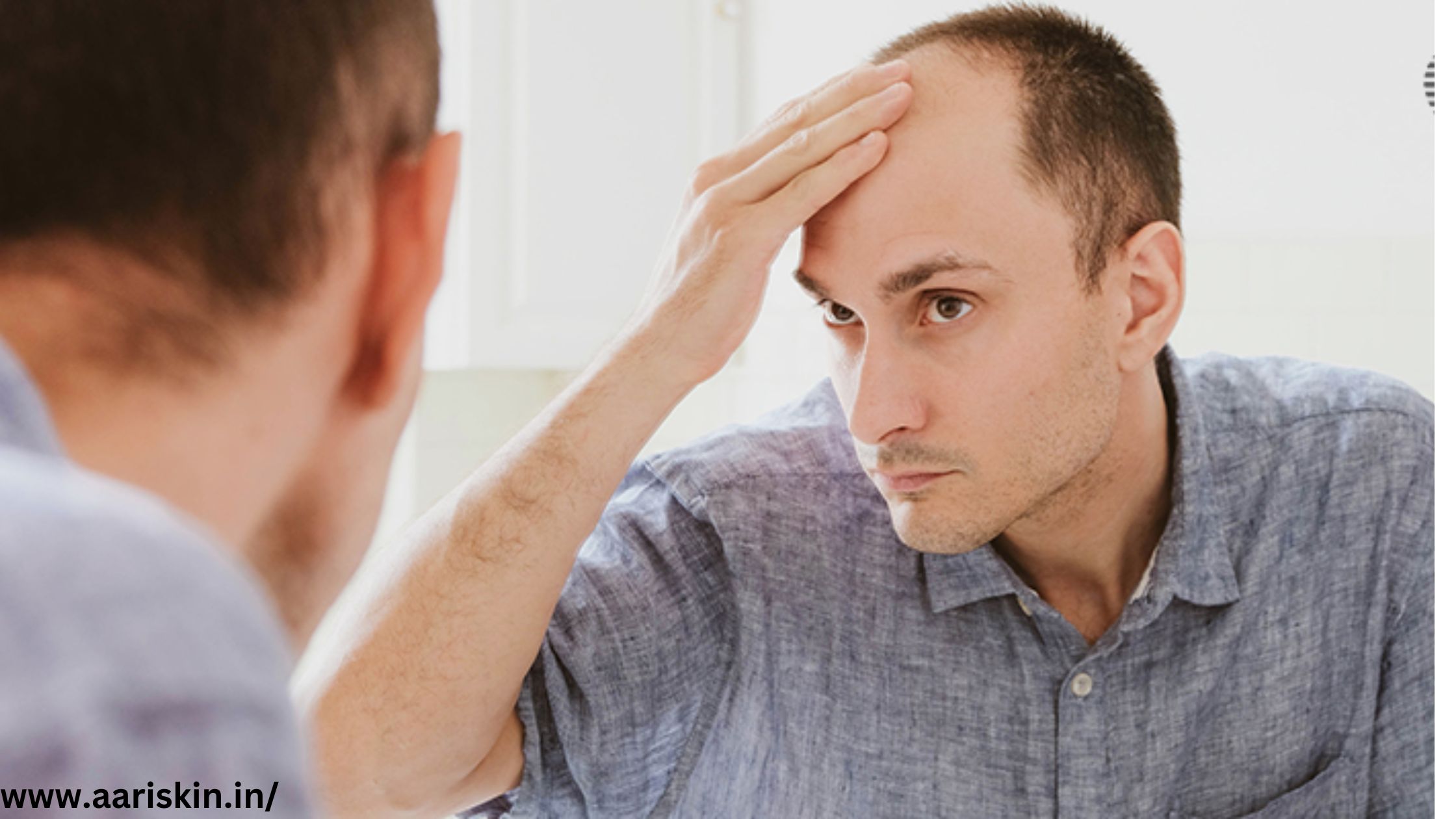Hair fall, also known as hair loss, is a common problem that affects millions of people worldwide. It is characterized by the excessive shedding of hair from the scalp, leading to thinning or baldness. In this blog, we will discuss the symptoms and causes of hair fall.
Symptoms of Hair Fall:
The following are the most common symptoms of hair fall:
- Excessive hair shedding: Losing 50-100 strands of hair per day is considered normal. However, if you notice an increase in the number of hairs that fall out during brushing or washing, it may be a sign of hair fall.
- Thinning hair: Thinning of the hair can be a gradual process, and it may be difficult to notice at first. However, if you notice that your hair is becoming thinner or your scalp is becoming more visible, it may be a sign of hair fall.
- Bald patches: If you notice bald patches on your scalp, it may be a sign of alopecia areata, which is a type of hair loss that occurs when the immune system attacks hair follicles.
- Itchy or irritated scalp: An itchy or irritated scalp can be a symptom of many conditions, including dandruff, psoriasis, or eczema. These conditions can lead to hair fall if left untreated.
Causes of Hair Fall:
There are many factors that can contribute to hair fall. The following are some of the most common causes:
- Genetics: Hair fall can be inherited from your parents. Androgenetic alopecia, also known as male or female pattern baldness, is a genetic condition that causes hair loss.
- Hormonal changes: Hormonal changes can cause hair fall, especially in women. Pregnancy, menopause, and thyroid problems can all contribute to hormonal imbalances that lead to hair fall.
- Stress: Stress can cause a condition called telogen effluvium, which is a temporary form of hair loss. This occurs when stress forces a large number of hair follicles into a resting phase, leading to excessive shedding.
- Nutritional deficiencies: A diet lacking in essential nutrients, such as vitamins and minerals, can lead to hair fall. Iron deficiency is a common cause of hair loss in women.
- Medical conditions: Medical conditions such as scalp infections, autoimmune disorders, and certain medications can lead to hair fall.
Conclusion:
Hair fall can be a distressing condition, but it is usually treatable. If you are experiencing hair fall, it is important to identify the cause and seek treatment. Maintaining a healthy diet, reducing stress, and using gentle hair care products can all help prevent hair fall. If you are concerned about hair fall, consult a Best Hair Fall Doctor In Jaipur for personalized advice and treatment.





